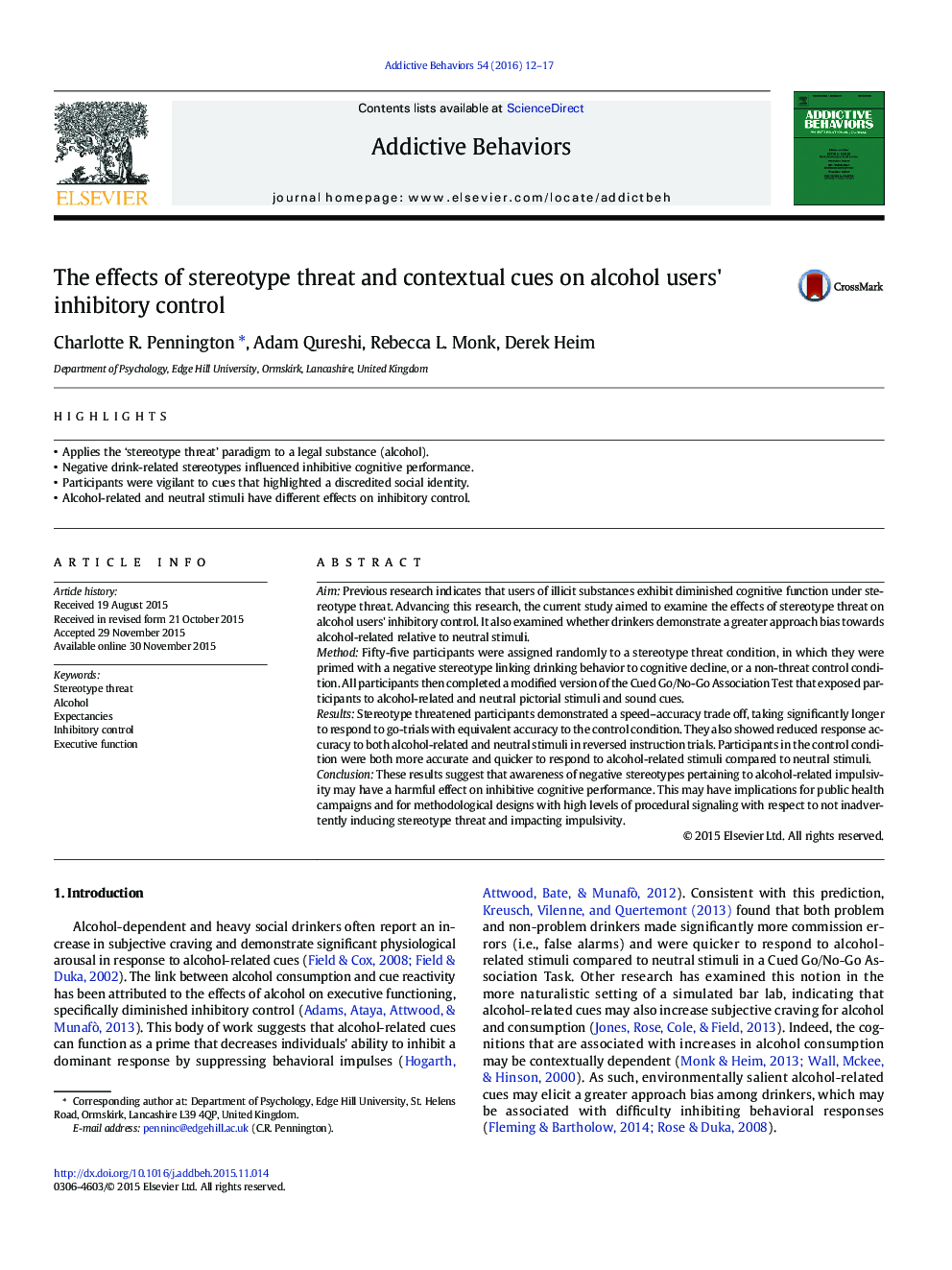| کد مقاله | کد نشریه | سال انتشار | مقاله انگلیسی | نسخه تمام متن |
|---|---|---|---|---|
| 898586 | 1472517 | 2016 | 6 صفحه PDF | دانلود رایگان |
• Applies the ‘stereotype threat’ paradigm to a legal substance (alcohol).
• Negative drink-related stereotypes influenced inhibitive cognitive performance.
• Participants were vigilant to cues that highlighted a discredited social identity.
• Alcohol-related and neutral stimuli have different effects on inhibitory control.
AimPrevious research indicates that users of illicit substances exhibit diminished cognitive function under stereotype threat. Advancing this research, the current study aimed to examine the effects of stereotype threat on alcohol users' inhibitory control. It also examined whether drinkers demonstrate a greater approach bias towards alcohol-related relative to neutral stimuli.MethodFifty-five participants were assigned randomly to a stereotype threat condition, in which they were primed with a negative stereotype linking drinking behavior to cognitive decline, or a non-threat control condition. All participants then completed a modified version of the Cued Go/No-Go Association Test that exposed participants to alcohol-related and neutral pictorial stimuli and sound cues.ResultsStereotype threatened participants demonstrated a speed–accuracy trade off, taking significantly longer to respond to go-trials with equivalent accuracy to the control condition. They also showed reduced response accuracy to both alcohol-related and neutral stimuli in reversed instruction trials. Participants in the control condition were both more accurate and quicker to respond to alcohol-related stimuli compared to neutral stimuli.ConclusionThese results suggest that awareness of negative stereotypes pertaining to alcohol-related impulsivity may have a harmful effect on inhibitive cognitive performance. This may have implications for public health campaigns and for methodological designs with high levels of procedural signaling with respect to not inadvertently inducing stereotype threat and impacting impulsivity.
Journal: Addictive Behaviors - Volume 54, March 2016, Pages 12–17
